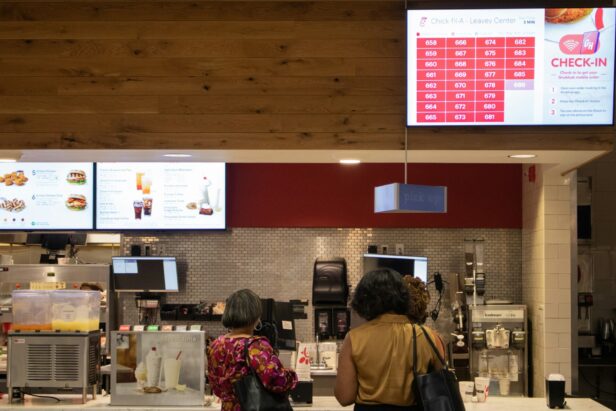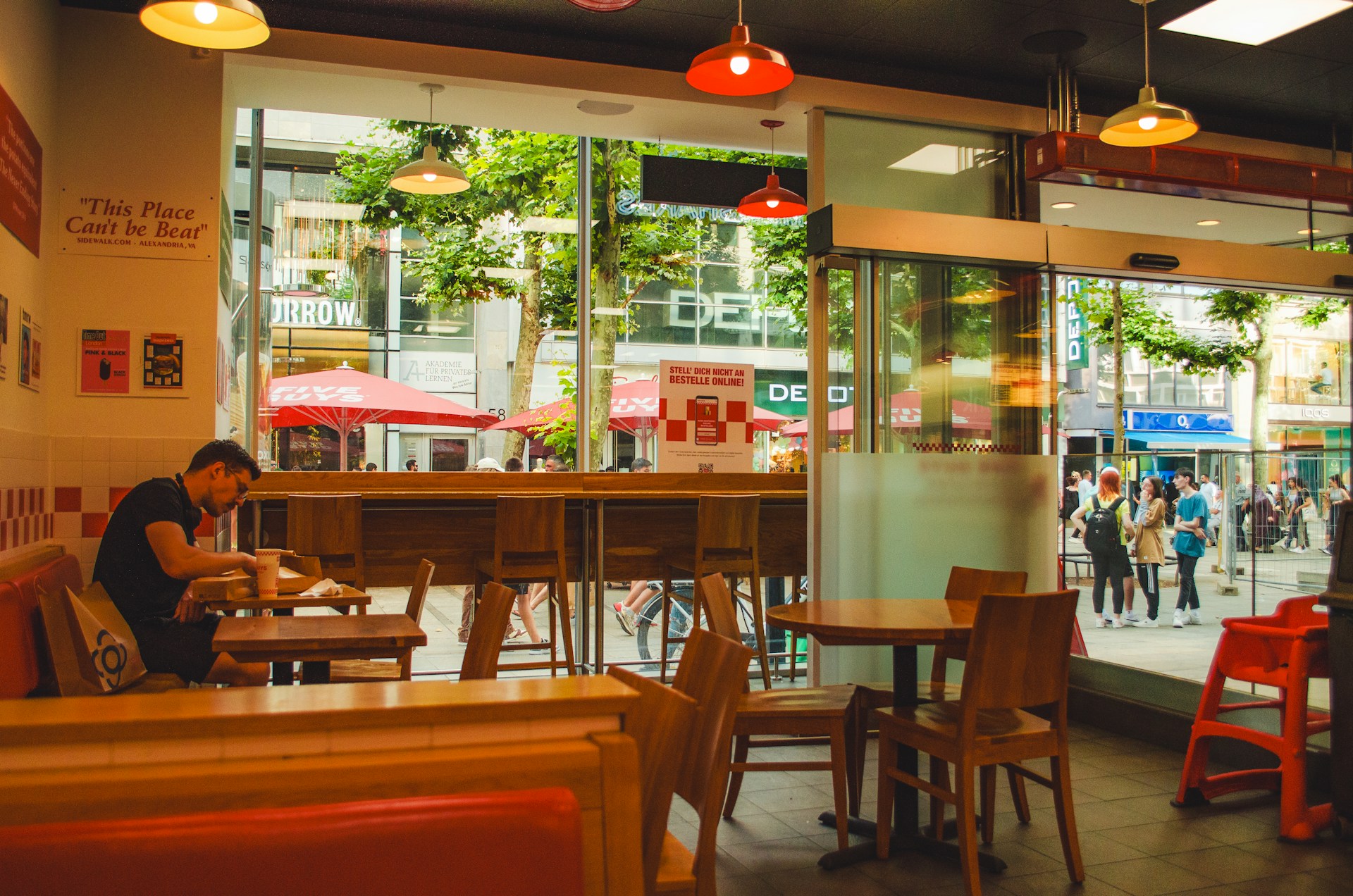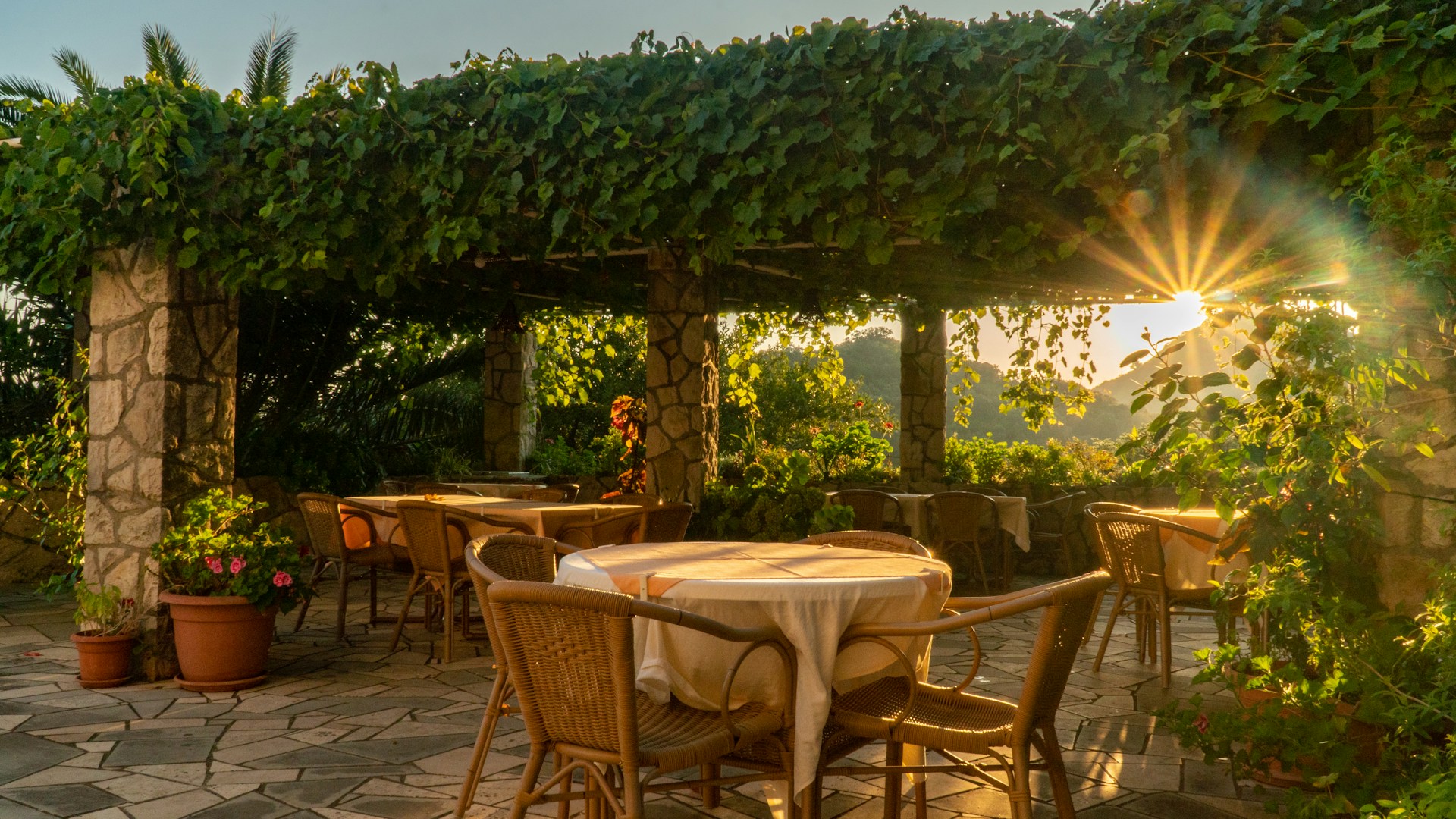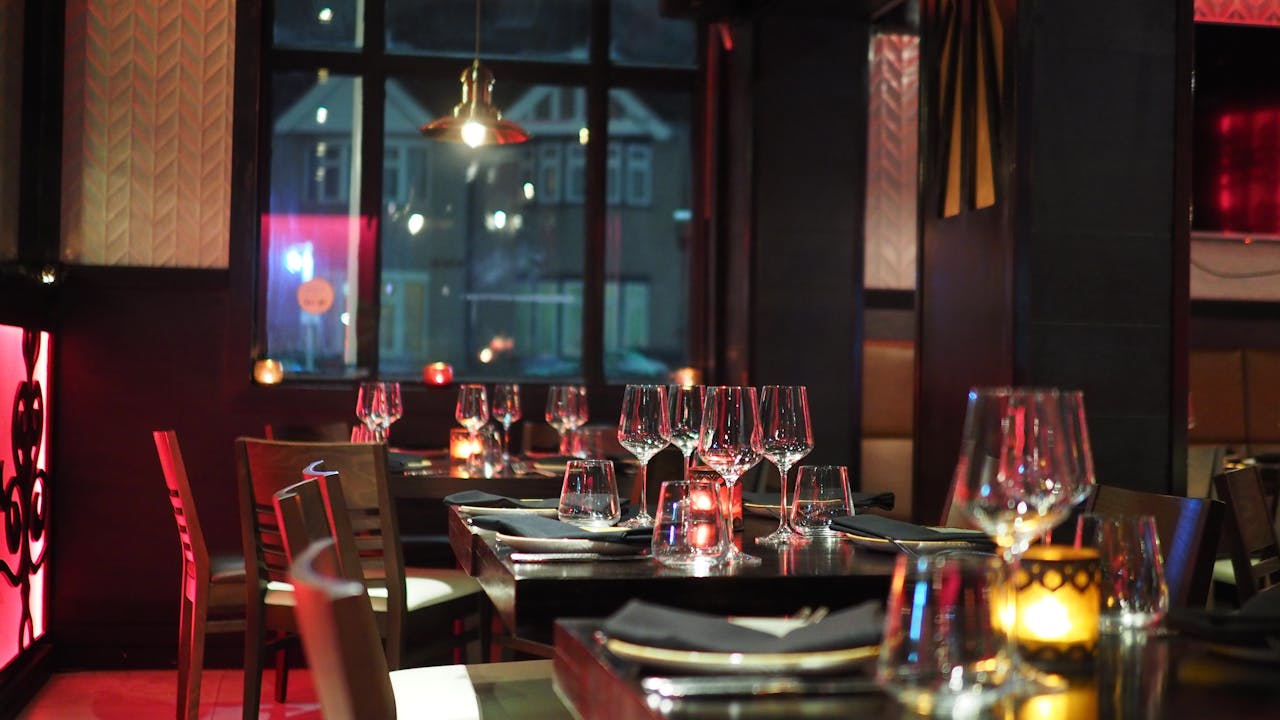Quick-service restaurants face mounting pressure to expand rapidly while maintaining brand consistency across multiple locations. A fast food construction company specializes in delivering these high-stakes projects on compressed timelines that would challenge most general contractors.
We build ground-up QSR facilities, execute tenant improvements, and manage extensive remodels for major chains requiring multi-state permits and simultaneous construction. Our teams coordinate with brand standards, health codes, safety requirements, and accessibility compliance to ensure each location meets operational demands from day one.
Which Services Should A Fast Food Construction Company Offer?

We provide preconstruction and value engineering services to help owners and franchisees refine their project budgets and construction scope from the start. This upfront planning identifies cost-saving opportunities while ensuring technical requirements align with operational goals. Value engineering reviews eliminate unnecessary expenses without compromising functionality or brand standards.
Our design-build approach streamlines the entire project delivery process. We coordinate architects, engineers, and specialty consultants under one contract, reducing potential conflicts and accelerating timelines. General contracting and construction management services provide additional delivery methods, allowing clients to select the approach that best fits their project structure and risk tolerance.
Ground-up construction forms the foundation of our QSR expertise. We execute new restaurant builds from sitework through final inspections, managing all trades and compliance requirements. Remodel projects require specialized coordination to minimize operational disruption while updating layouts, finishes, and equipment. Tenant improvements in shopping centers and strip malls demand precise scheduling around existing businesses and landlord requirements.
Multi-site rollout programs address the unique challenges facing growing franchises and national chains. We coordinate simultaneous builds across different markets, maintaining consistent quality and scheduling while adapting to local permitting and inspection processes. Licensed contractors in 38 states enable this geographic flexibility, supported by established subcontractor networks in each region.
Rebranding programs require careful attention to corporate design standards while working within existing building constraints. We help franchises update their image through strategic renovations that maximize visual impact while controlling costs. This includes exterior facade updates, interior layout modifications, and equipment upgrades that align with current brand specifications.
Facility maintenance and preventative services extend beyond initial construction completion. We provide ongoing support to reduce equipment downtime and address routine repairs before they impact operations. This maintenance relationship helps protect the long-term investment while keeping restaurants running smoothly during peak service periods.
Selective self-perform capabilities give us direct control over critical trades when project schedules demand it. We handle rough and finish carpentry, custom casework, millwork, and concrete work in-house when these specialties require tight coordination or accelerated delivery. This approach reduces subcontractor scheduling conflicts while maintaining quality standards across the most visible project elements.
What Technical Requirements Drive Successful QSR Builds?
QSR builds demand technical precision that addresses operational flow, customer experience, and strict compliance standards. We approach these projects with specialized expertise that ensures each element supports high-volume service while meeting regulatory requirements.
Drive-Thru Design Engineering
Drive-thru configurations significantly impact revenue potential and customer satisfaction. Multi-lane systems accommodate peak demand periods while reducing wait times. We position ordering stations, confirmation boards, and pickup windows to create smooth vehicle flow patterns.
Queue capacity calculations determine optimal lane lengths based on expected volume and service speeds. Digital menu board placement requires precise sight line analysis to ensure visibility from appropriate distances. Modern digital systems integrate with ordering technology to display real-time menu updates and promotional content.
Weather protection and drainage systems protect equipment and maintain year-round operability. We coordinate utility routing for power, data, and audio systems while maintaining ADA-compliant pathways for pedestrian access.
Interior Layout Optimization
Compact footprints require strategic space planning that maximizes throughput without compromising functionality. Kitchen workflows must support 90-second service windows through logical equipment placement and prep station organization.
Customer circulation patterns guide interior layouts to prevent bottlenecks during peak periods. Self-service kiosks and mobile order pickup areas require dedicated space allocation and technology infrastructure. Seating configurations balance capacity with comfort while accommodating various group sizes.
Back-of-house to front-of-house flow affects operational efficiency and food quality. We design pass-through openings, equipment placement, and storage access to minimize staff movement while maintaining food safety protocols.
Health Codes And Safety Standards
Health department requirements establish non-negotiable parameters for kitchen design and equipment selection. Three-compartment sinks, hand-washing stations, and food preparation surfaces must meet specific placement and sizing standards.
Ventilation systems require precise engineering to handle cooking equipment loads while maintaining indoor air quality. Fire suppression systems integrate with kitchen equipment to provide automatic protection for cooking surfaces and exhaust hoods.
Temperature monitoring capabilities support HACCP compliance through digital tracking of refrigeration and cooking equipment. Floor materials, wall finishes, and ceiling systems must facilitate thorough cleaning while resisting damage from commercial operations.
ADA Compliance Integration
Accessibility requirements affect entrance design, interior circulation, and customer service areas. Door widths, threshold heights, and maneuvering clearances must accommodate wheelchair users and mobility devices.
Counter heights at ordering stations require dual-level configurations or adjustable surfaces. Seating areas need designated wheelchair-accessible tables with appropriate spacing and approach angles.
Parking lot design includes properly marked accessible spaces with compliant signage and safe pedestrian routes to building entrances. These elements require coordination with local municipalities and building departments during the permitting process.
Brand Design Specifications
Franchise brand standards establish detailed requirements for materials, colors, fixtures, and architectural elements. We coordinate these specifications with local building codes and site constraints to maintain brand consistency.
Signage programs include exterior identification, menu displays, and interior wayfinding elements. Lighting design supports brand aesthetics while providing adequate illumination for safety and operations.
Specialized restaurant subcontractors execute finishes and equipment installations according to brand specifications. These teams understand the unique requirements of commercial food service environments and can deliver consistent results across multiple locations.
How Are Schedule, Budget, And Multi-State Delivery Managed?

Fast-food construction demands precise schedule and budget controls to meet aggressive opening timelines. Success hinges on technology-driven workflows, established safety protocols, and comprehensive contractor networks that enable simultaneous builds across multiple markets.
Digital Project Management Systems Drive Efficiency
Cloud-based project management platforms streamline the construction process by centralizing documentation and accelerating approvals. These systems integrate estimating software with real-time project tracking, reducing delays in submittals and change order processing. Digital workflows enable faster communication between field teams, corporate stakeholders, and regulatory authorities.
Precise estimating software helps contractors deliver accurate pricing and maintain budget discipline throughout the build. The technology supports value engineering decisions and enables quick responses to scope changes. Teams can track costs against milestones and adjust resource allocation before budget overruns occur.
Safety Programs Support Predictable Delivery
Comprehensive safety programs with structured training protocols ensure consistent jobsite management across all locations. Regular safety inspections and documented training reduce incidents that can delay project completion. Weekly inspections maintain quality standards and catch potential issues before they impact the schedule.
Established safety practices also support regulatory compliance, reducing the risk of work stoppages or rework. Teams that prioritize jobsite safety experience fewer delays and maintain better relationships with local authorities. This consistency becomes particularly important when managing multiple concurrent builds.
Multi-State Licensing And Contractor Networks
QSR contractors maintain active licenses across multiple states to support franchise expansion and rollout programs. Large subcontractor networks enable concurrent construction starts without resource conflicts between projects. We coordinate with pre-qualified trades who understand fast-track timelines and QSR-specific requirements.
This geographic reach allows for standardized construction approaches while adapting to local building codes and permitting processes. Established relationships with local subcontractors in each market reduce startup times and eliminate the learning curve typical with new partnerships. Fast-track schedules become achievable when teams have proven experience in each target market.
Due Diligence For Cost And Schedule Control
Industry guidance emphasizes thorough contractor vetting through license verification and client references. Speaking with past clients reveals how contractors handle change orders, schedule pressure, and budget management. Competitive bidding ensures complete scope coverage and fair pricing.
Multiple bids allow owners to compare not just pricing but also project approaches, timelines, and risk management strategies. This process identifies contractors who understand QSR demands and can deliver predictable results. Past client references provide insight into communication styles, problem-solving abilities, and commitment to schedule adherence.
Next Steps For Owners And Franchisees
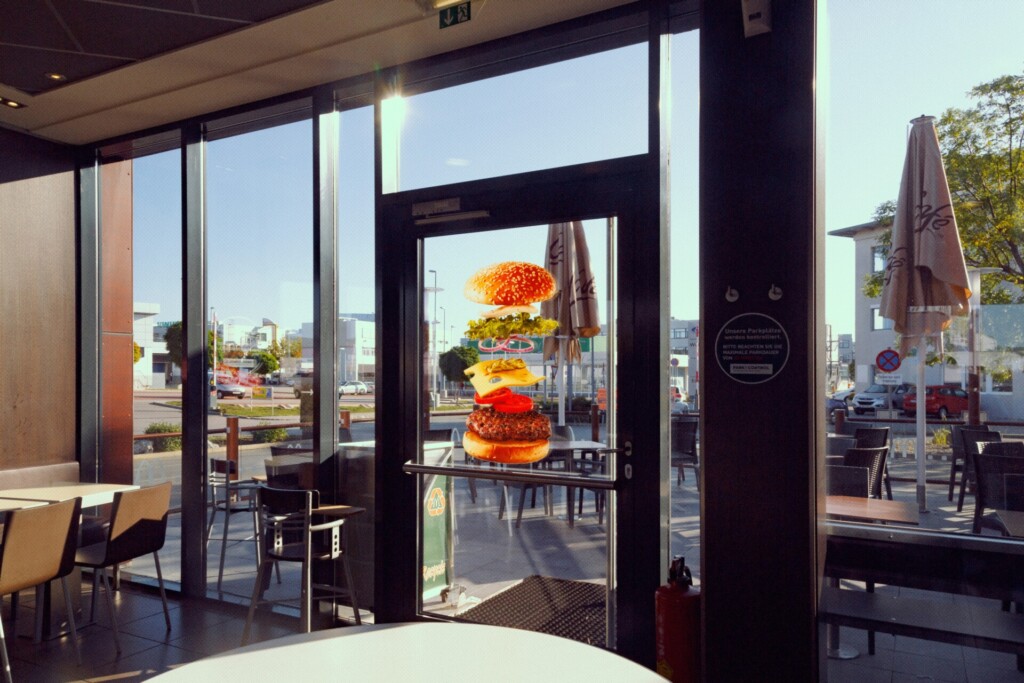
Starting your QSR project requires careful planning and the right construction partner. Begin by defining your project scope, establishing brand standards, and setting realistic timelines that account for permitting, design, and construction phases. Research shows that fast-food chains often need permits in multiple states for simultaneous builds, making early planning essential for franchise rollouts.
When evaluating fast food construction companies, ask detailed questions about their preconstruction services, design-build capabilities, and multi-site rollout experience. We recommend confirming their expertise in health codes, safety standards, and ADA compliance before moving forward. Review their schedule controls, safety practices, and digital project management tools to ensure they can deliver predictable results across multiple locations.
For multi-state expansion plans, verify that your construction partner maintains proper licensing and established subcontractor networks in your target markets. Follow industry-backed due diligence steps: check licenses, speak with past clients about their experience, and obtain multiple competitive bids to ensure complete scope coverage and fair pricing. This approach helps avoid costly surprises and ensures your QSR project stays on schedule and within budget.
Contact EB3 Construction to discuss your fast food construction project and receive a detailed proposal.

